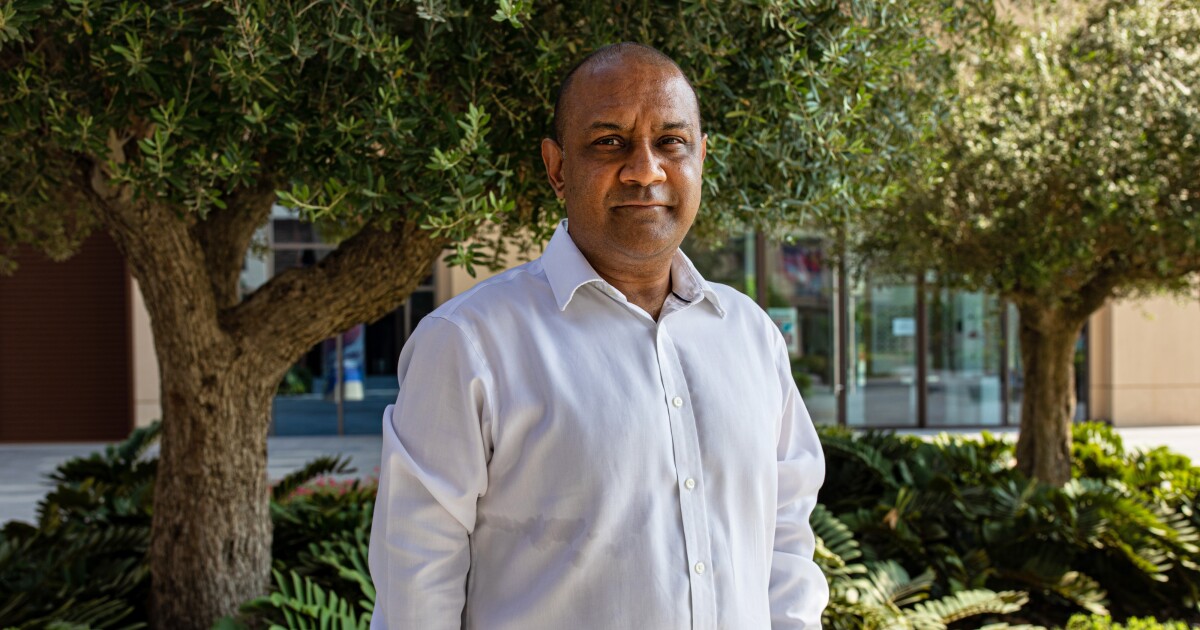British hedge fund trader Sanjay Shah was sentenced to 12 years in prison by Danish judges for orchestrating a billion-dollar tax scam, the heaviest jail term handed down so far in Europe’s sprawling Cum-Ex trading scandal.
A Danish district court on Thursday convicted the Solo Capital founder of serious fraud for creating a scheme that duped the Nordic nation’s treasury out of more than 9 billion kroner ($1.3 billion) through thousands of sham dividend tax refund applications between 2012 and 2015.
Shah immediately appealed the decision. He has consistently denied any wrongdoing, claiming he merely took advantage of legal loopholes.
The court ruled to keep Shah in jail while the appeal is processed, saying he was a flight risk. Shah had protested this claim, arguing he should be allowed to return to London to be closer to relatives and attend a High Court case against him in person.
The trader has been held in custody since he was extradited to Denmark from Dubai a year ago.
“I have maintained throughout these proceedings that I would not receive a fair and impartial trial in Denmark, today’s decision reflects this,” Shah said in a statement through his English lawyers. Shah arrived in court wearing a Christmas hat.
Denmark along with Germany has been at the heart of what has been one of Europe’s biggest tax scandals involving thousands of bankers, traders and lawyers, who exploited dividend payout laws across Europe to reap duplicate tax refunds.
Shah played an “central and controlling role” in the crime, the judge said on Thursday. The trader “carefully planned” the scheme and further implemented software in order to streamline and escalate it. More than 80% of the money flowed into his pockets, the judge said.
Shah is the third trader to be convicted in Denmark in relation to the scandal, which cost the nation a total of 12.7 billion kroner. Fellow British trader Anthony Mark Patterson was sentenced to eight years in prison after pleading guilty to helping Shah operate the hedge fund’s trading strategy.
At the final court hearing in September, Shah argued he was never going to be able to get a fair trial because he’d been labeled guilty by Danish government ministers from the start.
The 54-year-old will also be deported from Denmark and banned from entering the country, while assets worth more than 7 billion kroner, including real estate, securities and companies will be confiscated from Shah, the Danish court ruled. He will also pay for the case expenses.
The sentence is “a historically harsh punishment” corresponding to sentences given for murder, Mikael Skjodt, Shah’s defense lawyer, said after the ruling. “We hope the high court reaches a different conclusion.”
Denmark’s state prosecutor Marie Tullin had recommended Shah be imprisoned for 12 years, arguing he was the mastermind behind the scheme. She said Shah’s scam had concerned “an extraordinarily large amount, it’s been going on for a very long time, and it’s systematic fraud against the Danish state.”
“We have established that it’s against the law to get back taxes you have not paid. There is no loophole,” Tullin said.
In London, the Danish tax agency has also sued Shah and dozens of traders and businesses in a civil case that’s still running.
“The fact that the case at the district court has been able to reach a decision so quickly is good for the Danes’ sense of justice,” Rasmus Stoklund, Denmark’s tax minister, said in an email.
In Germany, roughly 1,800 people are being investigated, with several lawyers, bankers and asset managers already handed prison terms. Hanno Berger, a former tax lawyer, has been sentenced twice over Cum-Ex trades.


 Blog Post1 week ago
Blog Post1 week ago
 Economics1 week ago
Economics1 week ago
 Finance1 week ago
Finance1 week ago
 Personal Finance1 week ago
Personal Finance1 week ago
 Economics1 week ago
Economics1 week ago
 Accounting1 week ago
Accounting1 week ago
 Personal Finance7 days ago
Personal Finance7 days ago
 Personal Finance1 week ago
Personal Finance1 week ago













